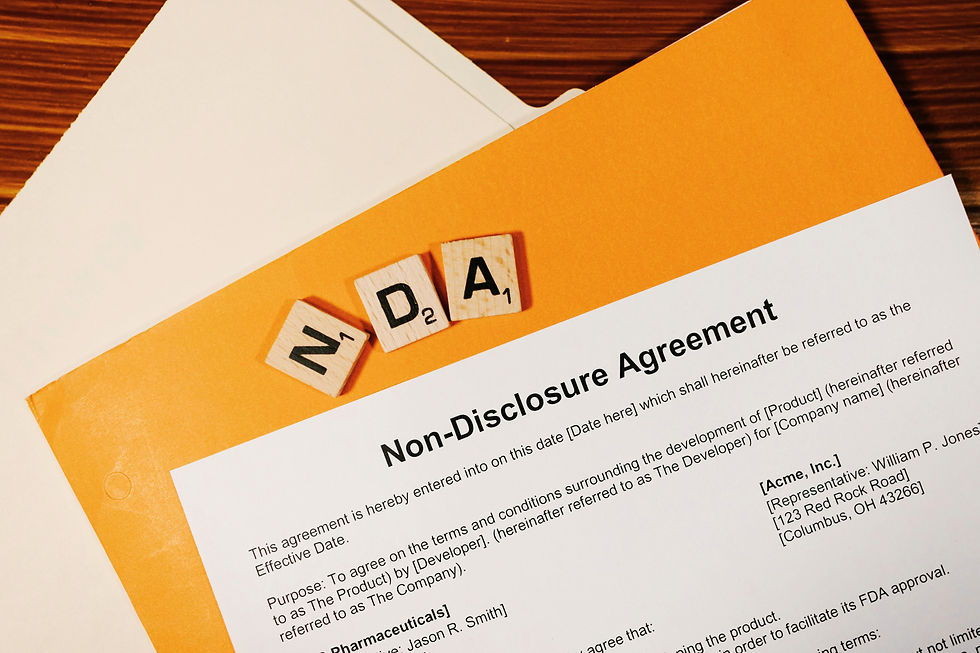What Employers Must Know About the Federal Trade Commission’s New Rule
- Chris Johnsen

- Jul 17, 2025
- 5 min read
Updated: Aug 28, 2025

The Federal Trade Commission (FTC) has introduced a new rule that will eliminate the use of non-compete agreements for most employees.
This shift in employment law requires employers to change their methods of protecting their business interests and team structure.
Employers should review this detailed article to learn how to stay compliant with the evolving laws.
Navigating the FTC's Non-Compete Rule: Current Status and Employer Action
Understanding the FTC's Ban on Non-Compete Agreements
On September 4, 2024, the FTC’s new rule banning most non-compete agreements will become effective. The federal court in Texas has issued an injunction that blocks the enforcement of the rule across the United States. The rule is not enforceable at present, but employers must stay informed because the legal process is ongoing and appeals could lift this pause. The rule prohibits employers from entering into non-compete clauses with all workers, regardless of their position or seniority.
Defining "Non-Compete Clause" and "Worker"
Non-compete clauses are defined as any employment terms that restrict or penalize workers from pursuing other employment opportunities or business activities in the United States after their employment ends. The rule defines "worker" as including all employees, independent contractors, interns and gig workers to reflect the diverse nature of the modern workforce.
The Senior Executive Exception and Its Implications
Existing non-compete agreements with senior executives remain valid. A senior executive is someone who earns more than $151,164 per year and makes executive-level decisions, such as CEO, President, or other positions with final decision-making authority. All non-compete agreements with workers below this category will become unenforceable after the effective date. Employers need to distribute particular notices to employees whose non-compete agreements will lose their ability to limit future job opportunities.
Employer Notice Requirements for Affected Workers
The FTC rule requires employers to inform current or former workers (except senior executives) about the rule when it becomes effective. The FTC requires employers to deliver notices by hand, mail, email, or text using pre-approved language. The FTC has provided optional model language for employers to customize their notices. Employers who fail to follow these requirements may face legal or regulatory sanctions. This process also provides an opportunity for employers to reaffirm confidentiality and intellectual property protections and other permissible restraints.
Exemptions and Limitations to the Non-Compete Rule
The rule maintains several specific exceptions despite its broad reach.
Non-Competes in Business Sale Transactions
Business sale contracts, ownership transfers and operating asset deals with substantial value retain their legal validity under this rule. The ban on non-compete clauses does not apply to franchise relationships because franchisors and franchisees are considered independent businesses rather than employer-worker relationships. Actions that accrued before the rule’s effective date will remain enforceable.
Other Key Exclusions: Franchises, Accrued Actions, and Exempt Entities
The rule exempts banks and nonprofits from its requirements but these organizations could still be subject to state laws.
Safeguarding Business Interests Without Non-Competes
Employers must modify their legal strategies because non-competes will be mostly unenforceable after the FTC rule takes effect. Companies with senior executives who do not have non-compete agreements should consider executing such agreements before the rule is reinstated to ensure compliance with policy-making and earnings criteria.
Leveraging Non-Disclosure Agreements (NDAs) and Confidentiality
Alternative tools remain available. The protection of business strategies and proprietary data along with trade secrets and client information continues through non-disclosure agreements. When properly established, NDAs remain effective tools for safeguarding confidential information.
The Continued Validity of Non-Solicitation Agreements
The enforcement of non-solicitation agreements remains valid as long as they do not operate as restrictive covenants against competition. The agreements successfully prevent former employees from pursuing either clients or staff members. Employers maintain the right to impose restrictions on employees working concurrently at other companies during their current employment period.
Protecting Trade Secrets and Intellectual Property
Trade secret laws at both federal and state levels provide legal options to protect against unauthorized use of protected information. Enforcement can be strengthened through internal protections which include audit protocols and employee training combined with restricted access controls. The protection of employee-created inventions falls under invention and assignment agreements which establish employer ownership.
Understanding Garden-Leave and Forfeiture-for-Competition Clauses
Organizations must establish specific rules regarding garden-leave and forfeiture-for-competition clauses because these rules must avoid violating the law.
The Evolving Legal Landscape and Future Outlook
The Nationwide Injunction: What It Means Now
The non-compete rule imposed by the FTC remains suspended because legal experts question whether the FTC exceeded its powers under the FTC Act.
Anticipating Appeals and Ongoing Legal Challenges
The agency plans to appeal the decision which will maintain legal uncertainty for multiple years. Employers need to follow legal developments and subscribe to updates from reputable labor law firms and monitor state law changes that can address federal pause gaps.
Proactive Compliance: Staying Informed and Auditing Agreements
Organizations can minimize their exposure to risk by taking proactive counsel and conducting internal audits of current agreements for both federal rule implementation and state-level regulatory changes.
Key Strategies for Employers Amidst Non-Compete Changes
Essential Steps for Adapting to New Regulations
The FTC's non-compete rule creates a major shift in employment law although it remains unenforceable until further notice. The law will stop businesses from establishing new non-compete agreements for any worker and requires employers to inform workers except senior executives that existing agreements will lose their effect. Non-competes that arise from business sales transactions remain enforceable.
Comprehensive Protection Measures Beyond Non-Competes
Organizations should adopt different protection measures including NDAs, non-solicitation agreements, trade secret policies and garden leave contractual clauses. Strategic implementation of these tools enables businesses to protect their interests while staying within legal frameworks. Employers need to take immediate action by checking their agreements while consulting with lawyers to match their policies to both future regulatory changes and current compliance standards.
Next Steps: Expert Guidance for Non-Compete Compliance
Preparing Your Business for Evolving Employment Law
The Federal Trade Commission's non-compete rule stands ready to transform employment law and employee mobility regulations. The survival of the rule depends on legal challenges or possible modifications so employers need to review their agreements while implementing acceptable protection measures.
Partnering with Johnsen Law for Strategic Legal Support
Johnsen Law provides businesses with assistance to handle this regulatory change. Our team delivers strategic guidance about employment contracts as well as confidentiality tools and risk-management solutions that match the new legal standards. Strategic planning helps your business maintain compliance together with competitiveness while being prepared for the upcoming future. Our firm will help you assess your employment contracts to ensure your organization stays competitive in this shifting legal environment.
Subscribe to our Email Notifications list. By subscribing to our email list you will be sure to get a notification about our next article that is posted here on JohnsenLaw.com/blog
along with other special updates and one-time only offers.






